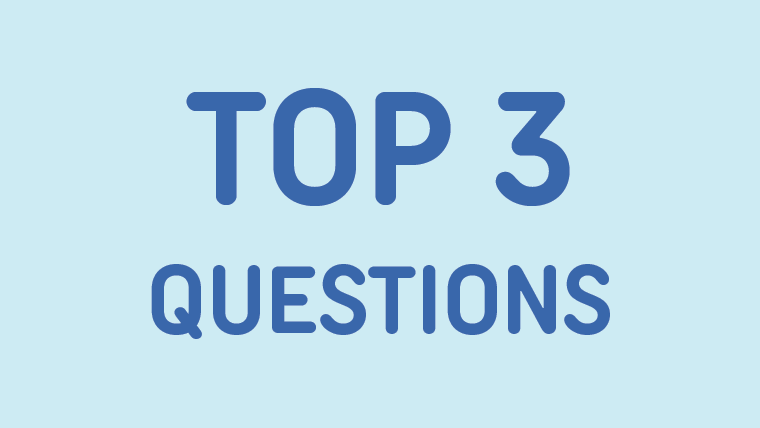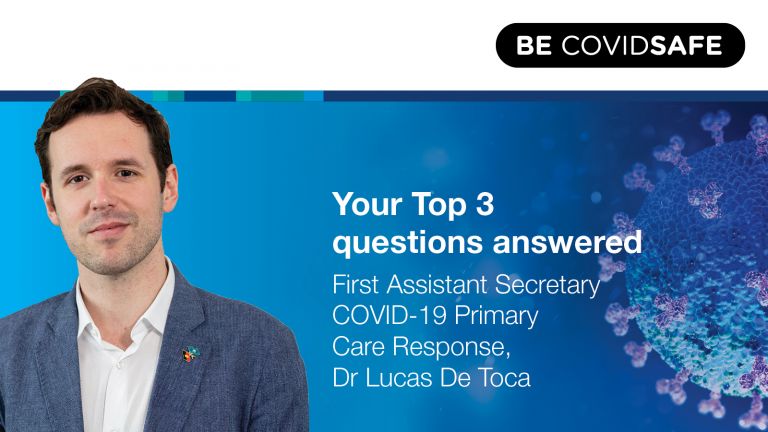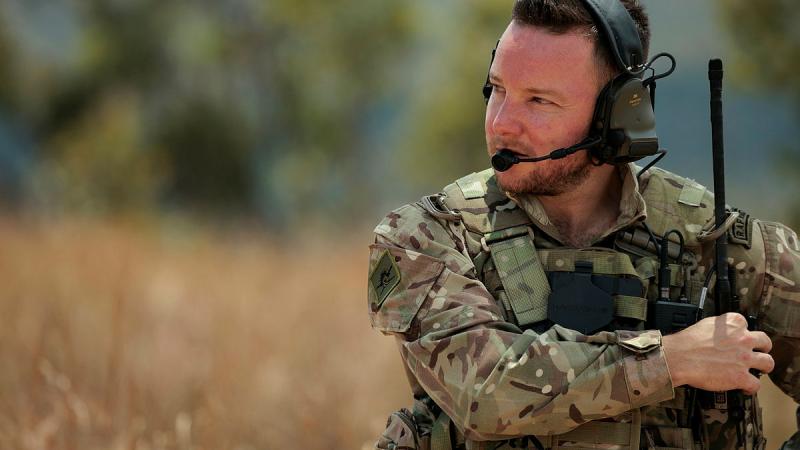
Good morning, I’m Doctor Lucas De Toca. Today I will be answering some of your questions that you have been asking in our social media channels. I’m joined by Ramas who will be doing our Auslan interpreting. I’m in the land of the Ngunnawal people. I got some comments last week that I speak too fast and my diction is not great, so I will try to speak a bit slower which is helpful for Ramas and the interpreting.
A big shout out today to colleagues working in airports all throughout Australia, both international airports that are now seeing large numbers of returning travellers. As well as domestic airports that are really gearing up as borders are opening and people are starting to travel for the holiday season. They do an enormous amount of work and we are really thankful for what you do. We ask everyone to be a little bit patient if there is a bit more queues or a bit more wait than usual and please wear your masks inside the airports space as that is required for domestic travel everywhere.
Today we are going to talk about boosters and why they are important when we have treatments available for COVID. We are also going to talk about what we’re doing to assess the severity of the Omicron variant, the new strain of SARS-CoV-2 which is the virus that causes COVID-19. We will also talk about things that we can do if we feel a bit anxious about the holiday period, and the travel and the gatherings that often come with that.
Why are we putting such emphasis on boosters when there are treatments for COVID? The general approach unfortunately there is no silver bullet for COVID-19 or for any virus really. We have a whole heap of measures that together dramatically reduce your chances of getting the disease, and if you do get it, from getting really sick from it let alone dying. So, there is not one thing that you can do and that is it. Which is unfortunate, and it is what we would like. That’s why sometimes times risk communication in a pandemic context is a bit complicated. Because why do we get vaccines if you can still get the virus? Why can we get vaccines if it is not a magic shield that protects you completely? The reality is that there is different layers and the more layers and the stronger the layers are, the lower your chances of getting it or getting sick from it. By far the strongest protection we can get is the vaccine. Two doses of a COVID-19 vaccine, the ones that are approved in Australia, are still incredibly effective at preventing severe disease, hospitalisation and death from COVID-19. We know that very well for the original strain, we know that very well from other strains that have emerged, like Alpha, Delta that is very present in Australia. We don’t have an indication that is not the case for Omicron, we don’t know yet. We haven’t seen any signs that the vaccines are less effective at preventing severe disease from Omicron. We also know the vaccines have some protection against getting the disease altogether. Early data might show that might not be as strong with Omicron with two doses, but we’re still looking at the evidence as it emerges, and it seems we are starting to get more data. Showing if we really have a high response, a high number of antibodies, if we have a booster response, that might help with prevention of infection in Omicron as well. What we do know is that definitely for Delta and very likely for Omicron a boosted immune response, which is what you get after you get your vaccine booster, is far more effective and much great than what you get from two doses. We have some indication and optimism about it lasting for longer. We do know that two doses provides incredibly high protection, over 90%, against severe disease. But it somewhat wanes over time especially when it comes to preventing infection. So, the booster really props it up and it’s a really important and it’s a really important thing we can do. As you know ATAGI, the Australian Technical Advisory Group on Immunisation has changed their advice. Now they recommend everyone get a booster at five months after your second dose, and not to wait if you can, and get it as soon as you are due. Then you will have the best possible protection against Delta and very likely many of the effects of Omicron. Treatments do exist and we are getting more and more. There are corticosteroids, IL6, interleukin 6 receptor blockers that are used routinely now in COVID care for patients that are admitted. We have monoclonal antibody cocktails that can be infused or injected into people to prevent progression against severe disease. Very soon we are hoping we are going to also to get oral therapeutics that will help reduce that risk. Ultimately, the best thing you can do right now is to get your two doses of vaccine if you haven’t already and get your booster if you are five months or more after your second dose. Then of course, if you have reduced your chances of getting the infection by being vaccinated, reduced your chances of getting severe disease by being vaccinated, but still get COVID, which can happen because as I said there is no silver bullet. Then you have treatment options that will further reduce your chance of getting severe disease, getting really sick, going to hospital, or let alone dying. There are many things that we can do but the easiest and the one you can do immediately, to dramatically reduce your chances is getting the vaccine. Very tired cliche, prevention is better than the cure, it is. But if you do get the virus, there are treatment options that the health system, your doctors, your GP, the hospitals where you are admitted, will make sure you get.
The second question is about how we are assessing the severity of Omicron. That is a key question. As we mentioned before, there are a number of things that we need to better understand about this new variant and there is a difference between what we see in the laboratory and what the genetic mutations might imply versus what we see in real life with the virus out in the community, and we need to understand both. We need to understand its transmissibility. We need to understand whether it is more infectious or not. We need to understand the effectiveness of vaccines, to prevent infection and to prevent severe disease against this variant. We need to understand the severity, whether people get less or more or equally sick from this variant than they do from Delta or other variants. We need to understand whether treatments work as well and need to try to understand whether there is any impact on diagnostic testing. All those things are now the subject of an incredible amount of research from thousands of people around the world, as the entire globe looks into this. As many collaboration mechanisms like the World Health Organization COVID-19 Clinical Data Platform where researchers from all around the world, governments from all around the world, laboratories from all across can share their data live. As well as learn from each other and share the wealth of knowledge that is happening. That sometimes is overwhelming because we seem to get news about Omicron every couple of hours. These new studies say X, there are other studies that say Y. That’s a bit inevitable when the entire planet is focused on this one topic. Experts from all around including experts here in Australia, the Chief Health Officers, The Australian Government Chief Medical Officer, are looking at all that data and the emerging picture on what it actually means. There are several ways that we can look at severity. We can see hospitalisation trends over time in areas impacted with Omicron and see how that differs from Delta. We need to be really careful with early assumptions because there is a lot of what we call confounders, sources of bias. That can give an impression very early on while it is actually being masked by somewhere else. For instance, if the disease has mostly spread among younger people, and we know younger people tend to get a lower chance of severe disease than older people, then we might think that it is it less severe. Because we are seeing fewer hospitalisations where it might just be a product of the age distribution in the people who are affected. We need a bit more time and a bigger picture of different cases so we can compare with previous waves including Delta waves overseas to then see whether there is a change of severity. The good news is that we are not getting any signal that this thing is more severe than the ones we have been dealing with before. We remain optimistic that it might be less severe, because it is true that generally it’s not uncommon for viruses to increase infectivity and reduce severity as they mutate and evolve ongoing. We just don’t have enough data yet to conclusively say whether this thing, whether Omicron, is less severe than Delta. We remain optimistic and we will keep you up to date with any changes. The Chief Medical Officer is doing Omicron updates on this channel so please tune into those.
Finally, if we are a little bit anxious about the holiday period and what that means. That is perfectly reasonable. The phase of the pandemic is changing in our country with borders opening both internationally and domestically. Cases are going up; we are seeing that across in the states that are reopening their borders will see their cases going up. What do we do to make sure that we stay safe as we travel for the holiday period? The usual, follow public health advice from your state and territory, and/or the state and territory where you are going to. Check if there are any requirements for you to cross the border. Some states have introduced PCR testing 72 hours prior to crossing the border, you might need border passes, you might need different apps to check in so make sure you read the advice for incoming travellers if you are going to cross the state border. Some states maintain indoor mask mandates in some areas. Please check out whether there are mask requirements. It also even if there is no masked requirement, if you’re in an area where you cannot maintain social distance, you can very easily wear a mask. If you feel uncomfortable around other people and are concerned about your own COVID risk, just wear a mask. It’s a really effective barrier method. Have conversations with people that you are travelling with or you are going to meet up with and assess what your level of comfort of being with other people are. Of course, if you are due for your booster please please go and get your booster. Because it is an incredible increase for your protection levels. If you are due before Christmas, this is the best time to get it before you might see more people than you have been seeing in the last few months.
That’s all we have for today. Thank you for tuning in and thank you for submitting your questions. This is the last one of the year for me but my colleagues will continue to provide these ones for the rest of the week and next week. I look forward to seeing you again, thank you for your comments and thank you for staying COVIDSafe. Have a great holiday period.
Top 3 questions
- Why are boosters important if treatments are becoming available for COVID-19?
- How are we assessing the severity of the Omicron variant?
- I’m fully vaccinated and feeling anxious about getting COVID-19 before Christmas – any tips on how to deal with this?







